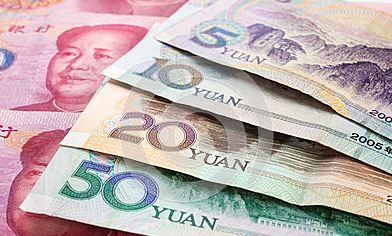Canada is moving closer to becoming a yuan hub, which will facilitate trade between the loonie (Canadian dollar) and China’s currency, according to the Canada-China Business Council.
The yuan, also known as the renminbi, is China’s national currency.
Neil Tait, vice-chair of the Canada-China Business Council, said there is a high probability that an agreement will soon be reached for the yuan. “If it doesn’t happen, there will be many of us disappointed,” he added.
Officials from the People’s Bank of China and Canada’s Department of Finance have been in talks for months to settle a hub for the yuan.
According to Mr. Tait, the deal will probably include a $30-billion swap line.
Nobody yet knows whether a deal has been formally reached. People familiar with the matter say the two countries need to iron out some political issues.
The Globe and Mail quoted a Bay Street (unnamed) source who said the talks are progressing well, but had no knowledge on whether a formal deal had been agreed.
Traders in Canada would save billions if they could exchange currencies with China directly.
Political hurdles to jump
Canada’s Prime Minister, Stephen Harper, has been invited to a bilateral meeting in China ahead of the November 10-11 Asia-Pacific Economic Co-operation summit. Mr. Harper says he will be at the summit, but has not yet given any details about a bilateral meeting with China.
Canada is trying to negotiate an outcome for two of its nationals who are being detained in China on suspicion of stealing military and defense research secrets.
If the invitation is turned down by Mr. Harper, the Chinese would consider it as a snub and relations between the two countries would cool considerably, experts say. Whether or not this would affect Canadian Banks’ chances of being allowed by China to trade its currency is anybody’s guess.
An advance team has flown to Beijing to start planning for Mr. Harper’s visit. However, this does not necessarily mean he will go. If he does decide positively, it is likely the yuan hub deal would be signed there and then.
So far, the following places have been designated yuan settlements hubs: London, Sydney, Frankfurt, and Hong Kong. London became a Chinese currrency dealing hub in March, 2014. Negotiations are underway in Malaysia, United Arab Emirates, Kenya, France, Luxembourg, Switzerland, and the United States.
When a hub deal is signed, a swap line is created so that the availability of exchange funds (in case of an emergency) can be used. Then a direct connection to a Chinese clearing bank is made that allows a freer exchange of the local currency and the yuan.
If Canada became a yuan hub, traders would no longer have to buy US dollars and then convert them into yuan, which would save at least $2.75 billion per decade just on imports, and between $21 billion and $32 billion on exports.

